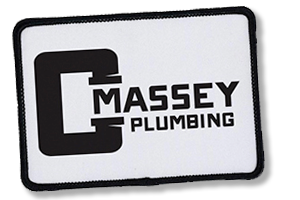Clogged drains can be a frustrating and inconvenient problem that disrupts the smooth functioning of your plumbing system. Whether it’s a slow-draining sink, a backed-up shower, or a foul odor emanating from your drains, addressing these issues promptly is essential.
This blog will explore the causes of clogged drains, effective solutions to clear them, and preventive measures to keep your drains flowing smoothly. Read on to learn more.
Understanding the Causes of Clogged Drains
Clogged drains can stem from various factors, and identifying the underlying cause is crucial to finding an appropriate solution. Let’s delve into some common culprits behind drain blockages:
-
Accumulation of Hair and Soap Residue
When hair combines with soap scum, it forms a sticky mess that clings to the inner walls of your drains, gradually obstructing water flow.
-
Food Particles and Grease Buildup
Kitchen drains often suffer from food scraps and grease buildup, which solidify over time, causing stubborn clogs.
-
Mineral Deposits and Hard Water
Mineral deposits can accumulate in pipes in regions with hard water, reducing their diameter and impeding water passage.
-
Foreign Objects and Debris
Sometimes, objects like jewelry, small toys, or tree roots can find their way into drains, leading to blockages.
Signs and Symptoms of Clogged Drains
Recognizing the early warning signs of clogged drains can save you from a major plumbing headache. Watch out for the following warning signs:
-
Slow Drainage and Standing Water
If the water drains from your shower slower than usual or gathers around your feet, there is likely some partial obstruction in the drainpipe.
-
Unpleasant Odors and Gurgling Sounds
Foul smells from drains and gurgling sounds when using fixtures indicate a potential clog, as trapped debris emits odors and air struggles to escape the blockage.
-
Backups in Multiple Fixtures
When multiple drains in your home are experiencing slow drainage simultaneously, it suggests a blockage in the main sewer line.
DIY Solutions for Clogged Drains
Before calling a professional, you can try DIY solutions to clear minor drain clogs. Here are some methods and resources you might want to try:
-
Plunging a Drain Effectively
Grab a plunger designed specifically for sinks or toilets, place it over the drain, and vigorously plunge up and down to create pressure that dislodges the clog.
-
Utilizing Drain Snakes or Augers
Long, flexible instruments called augers or drain snakes can reach far down the drain to dislodge or remove the clog. Rotate the snake while applying gentle pressure to maneuver it through the pipe.
-
Natural Remedies and Homemade Drain Cleaners
Certain household ingredients like baking soda, vinegar, and hot water can be a natural and eco-friendly alternative to chemical drain cleaners. These combinations create a fizzing reaction that helps break down organic matter.
Professional Methods for Clearing Clogged Drains
While DIY solutions work well for minor clogs, persistent or complex blockages may require professional intervention. Consider the following techniques used by plumbing experts:
-
Hydro Jetting: High-pressure Water to Remove Blockages
Hydro jetting employs a specialized machine that blasts highly pressurized water into the pipes, clearing away even the most stubborn clogs and debris.
-
Drain Snaking with Motorized Equipment
Professional plumbers use advanced drain snakes with motorized capabilities to navigate complex piping systems and remove obstructions efficiently.
-
Video Camera Inspection for Accurate Diagnosis
Plumbers utilize video cameras put into the pipes to locate and identify the precise nature of a blockage in a drain. This enables them to provide a precise solution tailored to your specific issue.
Preventive Measures to Avoid Clogged Drains
The initial step to maintaining the health of your drainage is prevention. You may drastically lower the likelihood of clogs by establishing a few easy habits. Here are some preventive measures to consider:
-
Proper Disposal of Waste Materials
Dispose of food scraps, grease, and other waste materials in the appropriate trash receptacles rather than down the drain.
-
Regular Cleaning and Maintenance Tips
Routinely flush drains with hot water, use enzymatic cleaners to break down organic matter and consider professional drain cleaning services periodically.
-
Using Drain Guards and Strainers
Install drain guards or filters in your sinks, showers, and tubs to catch hair, food particles, and other debris before they enter the drain.
Conclusion
Clogged drains are a common household nuisance, but you can effectively deal with them with the right knowledge and techniques. By understanding the causes of clogs, recognizing the warning signs, and implementing preventive measures, you can keep your drains clear and maintain a healthy plumbing system.
Remember, when facing persistent or severe clogs, don’t hesitate to contact C Massey Plumbing for expert assistance. Keep your drains flowing smoothly, and bid farewell to clogs and plumbing woes. Contact us at (919) 795-0546.
Frequently Asked Questions (FAQs)
How often should drains be cleaned professionally?
Depending on your usage, professional drain cleaning is recommended every 1-2 years to prevent debris buildup and potential clogs.
Can clogged drains lead to bigger plumbing issues?
If not fixed, clogged drains can cause more serious issues, including pipe corrosion, sewage backups, and even structural damage to your property.
Are chemical drain cleaners safe for the pipes?
Chemical drain cleaners can be harsh on pipes, especially older or fragile ones. It’s advisable to use them sparingly and consider natural alternatives when possible.
What should I do if the DIY methods fail to clear the clog?
If your attempts at clearing the clog prove unsuccessful, it’s time to seek professional help. Plumbers have the expertise and specialized tools to tackle challenging blockages.
Are there any eco-friendly options for unclogging drains?
There are many eco-friendly ways to clean drains, such as baking soda and vinegar or enzyme drain cleaners, which break down organic waste without harsh chemicals.
